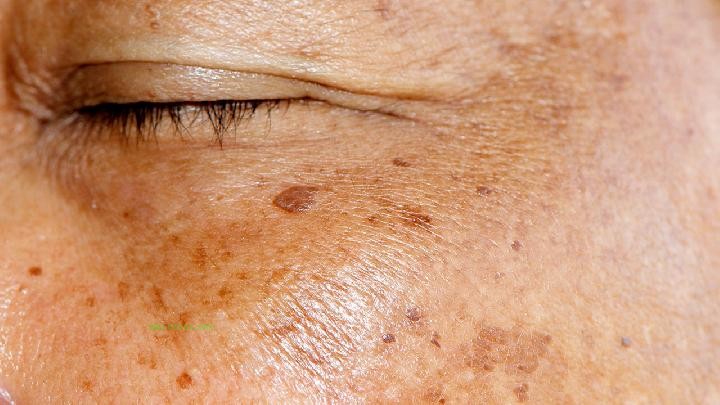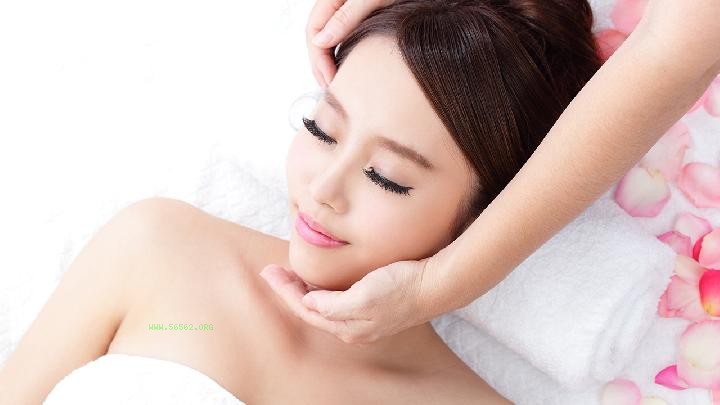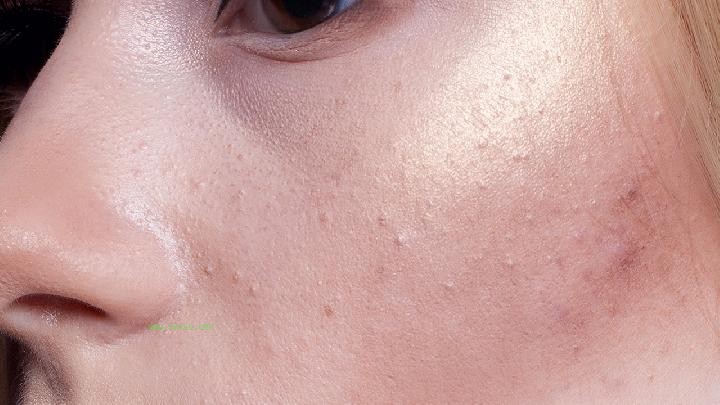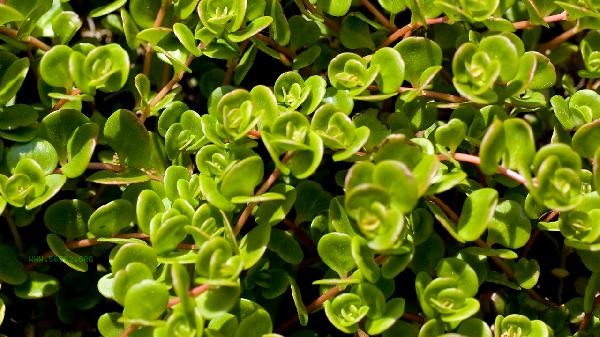In early spring, due to changes in the external environment, people with allergies are prone to skin allergies. Spring health and beauty diet can cause skin allergies. In the early stages of the disease, the skin may suddenly show mild redness, swelling, slight bumps, or a few rice sized red papules, mostly limited to the face and neck, and may also be accompanied by allergic rhinitis.
With frequent occurrences, skin diseases such as dermatitis, psoriasis, eczema, urticaria, lupus erythematosus, etc. are very prone to recurrent attacks. During attacks, symptoms such as itching, redness, burning pain, and peeling are interconnected. When dealing with skin problems, methods with few side effects, no hormones, minimal skin irritation, and minimal harm should be chosen. In addition to diagnosing the underlying cause of the skin disease, it should also be combined with the season of onset, patient's medical history, physical condition, and symptoms of onset.
When dealing with skin problems, methods with few side effects, no hormones, minimal skin irritation, and minimal harm should be chosen. In addition to diagnosing the underlying cause of the skin disease, it should also be combined with the season of onset, patient's medical history, physical condition, and symptoms of onset.
Just like treating skin diseases now, it must be linked to the characteristics of spring. In spring, there are strong sandstorms, sudden changes in temperature, and a lot of dust, bacteria, mites, and pollen. Dry skin is prone to allergies, and skin diseases may recur or worsen. For patients with allergies, the primary task is to stay away from allergens. What is the best way to deal with spring skin allergies? In spring, due to significant changes in climate, the wind becomes stronger, and frequent contact with easily allergenic plant pollen leads to dry and rough skin, flaking, red spots on cheeks, and stinging skin care products.
1. People with sensitive skin always have allergic symptoms that cannot be cured, so they must be careful to prevent them at all times and avoid contact with allergens. Therefore, in areas where pollen is flying in spring, try to minimize going out and avoid pollen dermatitis.
2. It is important to have a clear understanding of the skincare products and usage methods you are using.
Avoid using substances with strong therapeutic effects, high activity, and skin irritation. Excessive and improper use of powerful cleaning products can damage the natural protective tissue on the surface of the skin, and overly active cosmetics that accelerate blood circulation can also irritate the skin.
Do not use soap or other soap based detergents when washing your face. Surfactants should be avoided as much as possible by celebrities who decompose keratin. It is best to use emulsion or non soap soap to regulate pH and adapt to the skin.
Doctors have noticed that tips may cause allergic dermatitis. Firstly, it is important to stay away from known allergens. For allergies of unknown causes, it is recommended to undergo allergen testing at a reputable hospital and avoid self medication. Treatment and medication should be carried out under the guidance of a doctor, and antihistamines can be taken for desensitization treatment. Patients with allergic dermatitis should stop using cosmetics and facial wash products to reduce skin irritation. In addition, maintain a balanced nutrition, eat more fresh vegetables, and avoid foods such as shrimp and crabs that are prone to allergies.
may cause allergic dermatitis. Firstly, it is important to stay away from known allergens. For allergies of unknown causes, it is recommended to undergo allergen testing at a reputable hospital and avoid self medication. Treatment and medication should be carried out under the guidance of a doctor, and antihistamines can be taken for desensitization treatment. Patients with allergic dermatitis should stop using cosmetics and facial wash products to reduce skin irritation. In addition, maintain a balanced nutrition, eat more fresh vegetables, and avoid foods such as shrimp and crabs that are prone to allergies.
Two elements of skin allergies
External factors
1. Chemical elements: cosmetics, soap, detergents, etc.
2. Environmental factors: cold, hot, rapid temperature changes, seasonal variations, air pollution, sunlight, etc.
3. Lifestyle: Spicy and stimulating diet, alcohol can exacerbate skin reactions.
4. Psychological factors: Increased stress, emotional maneuvering, etc. often trigger or exacerbate skin reactions.
Internal factors
1. Age: Younger people have more sensitive skin than older people, and older people have decreased skin sensory nerve function and nerve distribution.
2. Gender: Generally, women are more sensitive to skin irritation than men. Women have high skin pH values and poor stimulation buffering ability.
3. Genetics: Most individuals with sensitive skin have a family history of sensitive skin.
4. Endocrine factors: The menstrual cycle affects skin sensitivity.
5. Diseases: Increased skin sensitivity such as atopic dermatitis, seborrheic dermatitis, and ichthyosis.
Recommended anti diet
Clearing heat and nourishing blood: Houttuynia cordata jujube tea
Houttuynia cordata clearing heat and detoxifying, jujube nourishing blood, gradually improving red blood cell quality, improving allergic constitution, and adjusting skin. 75 grams of dried Houttuynia cordata, 15 jujubes, and 3000 milliliters of water. However, red dates vary in size and need to be adjusted according to individual body constitution. For example, people with a slightly hot constitution may add fewer red dates. After washing the Houttuynia cordata and red dates, boil them in a clay pot, reduce the heat and continue boiling for 20 minutes. Drink them as tea every day.
detoxification and Moisturizing: Pork rib soup
Pork is rich in vitamin A, which has the effects of nourishing yin, moisturizing dryness, and tonifying the skin. It is suitable for consumption in dry and windy weather. Traditional Chinese medicine also believes that pork can nourish the organs, smooth the skin, nourish the middle and nourish qi. A professor from Japan's Achilles tendon university found through investigation that well cooked pork can also become a longevity medicine. The best cooking method for moistening and drying pork is to cook pork rib soup, adding radish and seaweed that can remove greasiness and reduce cholesterol intake.
Strengthening the spleen and calming the heart: Poria cocos milk
Poria cocos milk strengthens the spleen and calming the heart, delays aging, and helps alleviate the effects of spring skin spots, acne, and other symptoms, as well as relieve spring irritability [SEP]. Specific methods: Prepare 10 grams of Poria cocos powder, 200 milliliters of milk, and an appropriate amount of sugar. Boil Poria cocos powder in cold water, add boiled milk, once a day, and eat on an empty stomach in the morning.
Anti allergy and lung moistening: Honey
is dry and windy in spring, and the body loses a lot of water. Drink a cup of honey in the morning and evening every day to replenish water, moisten the intestines and promote bowel movements, increase nutrition, prevent colds, and remove toxins from the body. Spring is a season with high incidence of allergies. American immunology experts have found that people with allergies can avoid seasonal allergy symptoms such as wheezing, itching, coughing, and dry eyes if they can drink a spoonful of honey every day for two consecutive years. Novelty attempt: Honey stir fried banana
Novelty attempt: Honey stir fried banana
Ingredients: banana, olive oil, honey, water, cinnamon powder (optional or optional)
1. Slice the banana in a pot, heat the olive oil, add banana slices, fry until both sides are golden brown, then remove.
2. Then pour a spoonful of honey and a spoonful of water into the pot, start bubbling, and pour in the fried banana. Stir fry well and remove from the pot.
3. After serving, sprinkle cinnamon powder.
Warm reminder: There are two reasons why honey can prevent allergies. One contains trace amounts of bee venom. Bee venom is a toxic liquid in the body of bees, but it is used clinically to treat allergic diseases such as bronchial asthma.
Secondly, honey contains a certain amount of pollen grains, and regular consumption can develop some resistance to pollen allergies.
Blood tonifying and beauty preserving: Jujube and medlar Congee
Material: tremella, rice, chrysanthemum, seedless jujube, medlar, honey 1. tremella plus water bubble, take the root and tear it into small pieces.
1. tremella plus water bubble, take the root and tear it into small pieces.
2. After the water in the clay pot boils, add rice and Tremella fuciformis and bring to a boil over high heat. Continue boiling over low heat for 30 minutes.
3. Add chrysanthemum, seedless jujube, and wolfberry, and continue boiling for 30 minutes.
4. Cool the cooked Congee to below 60 ℃, and add honey to adjust it.
Warm Reminder: Japanese scholars have found that jujube contains a large amount of anti allergic substance cyclic adenosine monophosphate, which can prevent allergic reactions from occurring. Patients with allergic symptoms can take jujube regularly.




Comments (0)
Leave a Comment
No comments yet
Be the first to share your thoughts!